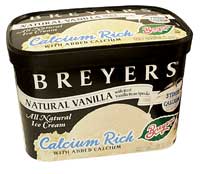
Added Calcium Ice Cream
The folks at Breyers (Good Humor, Green Bay, Wis.) have fortified their ice cream with added calcium, making it easier to justify eating it! A 1¼2 cup serving offers three times as much calcium as regular ice cream, with 30% of the daily value (DV) for calcium. Calcium is the most abundant mineral in the human body, with 99% of it found in our bones and teeth. It is essential to normal muscle and nerve functions, and is important in preventing rickets, osteoporosis and hypertension.The calcium in the ice cream comes in the form of calcium carbonate, a common and cost effective form of calcium. Together with calcium citrate, they are the most popular forms of calcium used in supplements.
Other sources of calcium available to processors include: calcium lactate, calcium phosphate, calcium gluconate, calcium chloride, calcium glycerophosphate and calcium sulfate.
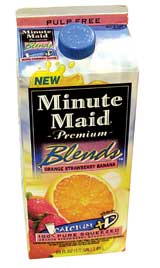
Rickets-y Business
Calcium is the building block of strong bones, but the body needs vitamin D in order to absorb calcium. Vitamin D can be categorized as both a vitamin and hormone: it is called a vitamin primarily because it is needed for calcium absorption and is like a hormone because the body manufactures it when exposed to sunlight. Most people do not get enough vitamin D, making our population susceptible to osteoporosis, a condition in which bone mass is compromised and bones become fragile. Vitamin D is needed for growth and helps regulate the heartbeat; also, it helps enhance immunity, is essential in blood clotting and is necessary for thyroid function.Up to 90% of the vitamin D produced in the body is the result of a chemical reaction that occurs when ultraviolet B light shines on the skin. Because dark skin does not absorb as much of this light as fair skin, dark-skinned people or women who are veiled have a high risk of vitamin D deficiency. A study published in the Medical Journal of Australia (May, 2001) showed that 91% of their subjects—who were pregnant, and had dark skin and were consistently covered—had deficient vitamin D levels.
U.S. citizens who live in cities where sunlight is scarce during the winter months, such as Chicago, Minneapolis, Seattle and Boise, also run the risk of having a vitamin D deficiency. An article in Tufts University's (Medford, Mass.) Health & Nutrition Newsletter (February 2003) reported that it not only leads to depression but also puts those over 50 at risk of osteoporosis.
Another illness directly linked to vitamin D deficiency is rickets, a bone-bending disease that was practically eradicated in the U.S. in the 1920s, but that is on the rise in this country. Low levels of the vitamin also have been tied to Type 1 diabetes, hypertension and cancer. Native Finnish people suffer from the world's highest incidence of Type 1 diabetes, and researchers there have proven that giving infants and expectant mothers vitamin D supplements reduces risk of the disease.
Minute Maid (Houston), a division of The Coca-Cola Company (Atlanta), recently introduced Minute Maid Premium Blends, a line of 100% juices with an orange juice base that “provides 120% of the recommended daily intake of vitamin C and 35% of the daily intake for calcium. Vitamin D, in conjunction with calcium, helps promote life-long healthier bones,” states information on the company's website.
The juices are available in 64-fl.-oz. cartons, and the orange, strawberry and banana variety claims to have 33% more of the calcium daily value, 60% more of the vitamin C daily value and 25% more of the vitamin D daily value than unfortified” juice.
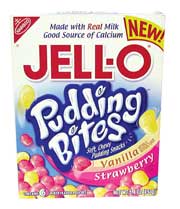
An Old Friend, Calcified
Those who have trouble digesting orange juice and milk can get their calcium from a familiar product with a new twist: Nabisco's Jello-Pudding Bites (Kraft Foods North America, Glenview, Ill.). The pudding bites are bite-sized, available in three varieties: chocolate, vanilla and strawberry, and chocolate and vanilla. They are fortified with calcium carbonate and are touted as a “Good Source of Calcium” on the package. There are six mixed pouches in this box of vanilla and strawberry, and the product claims to be made with real milk.
According to WebMD Inc., men should consume 1,000mg to 1,200mg of calcium daily, while women should ingest 1,000 to 1,300mg.
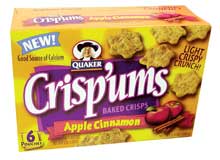
Crispy Calcium
When formulating calcium-containing products, it is important to consider the processing conditions, as heat, shelflife, flavor impact and grittiness all can negatively impact product performance. The Quaker Oats Company (Chicago) uses two types of calcium sources in its Crisp'ums baked crisps line extension, launched earlier this year: calcium carbonate and monocalcium phosphate. A blend of calcium sources helps assure a smooth, non-gritty product and helps make the calcium more soluble—a help during the production process. The products boast 10% of calcium's DV.
Eating Calcium Together
Setting an example of eating healthfully for children is easier with Malt-o-Meal's (Minneapolis) new family-sized breakfast pouch. The new items are available in Original Wheat, Chocolate and Maple & Brown Sugar. The hot cereal, which claims to be a good source of calcium on the label, is fortified with calcium carbonate. One serving offers 10% of the DV of calcium, 20% of vitamin B6 and 100% of the DV for folate.
While calcium carbonate is cost effective, it can give products a chalky taste. Mixing different sources of calcium is a good fix, as is adding calcium citrate or organic acid to improve solubility.
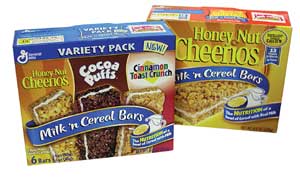
Calcium to Go
Life's fast pace resulted in food taking the form of bars. General Mills Cereals' (Minneapolis) Milk 'n Cereal bars claim to have “the nutrition of a bowl of cereal with milk,” and the Honey Nut Cheerios variety claims to be an “excellent source of calcium,” with 13 vitamins and minerals and 6g of protein.
Calcium carbonate is fortified into the bars, and the variety pack—which includes Honey Nut Cheerios, Cocoa Puffs and Cinnamon Toast Crunch—offers consumers 25% of the DV of Vitamin D, 25% of the DV calcium, 15% of phosphorus (calcium binds with phosphorous—another element that vitamin D enables in our bodies), a whopping 50% of folic acid and 30% of zinc, among other vitamins and minerals.
Website Resources
http://community.healthgate.com/GetContent.asp?siteid=iHerb&docid=/tnp/pg000467— Extensive info. on vitamin Dwww.cc.nih.gov/ccc/supplements/vitd.html— Vitamin D and diseases
www.abc.net.au/science/news/stories/s357606.htm— Australian study
http://yourhealth.sih.net/healthyliving/nutrition/dec02nutritioncalcium.htm— The basics of calcium
Some of the information in this article was derived from Mintel International's Global New Products Database, www.gnpd.com, 312-932-0400. For more information on the GNPD, e-mail: kthackston@mintel.com
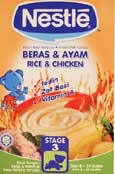
Sidebar: Going Global
In Malaysia, Nestle (Selangor, Malaysia) provides 200 IU of vitamin D in its Beras & Ayam Infant Milk Cereal. Made for spoonfeeding, the cereal is intended for babies older than six months up to 24 months, when breast milk no longer addresses their growing energy needs. A Nestle technology known as Cereals Hydrolysed Enzymatically (CHE) breaks down carbohydrates into smaller components for easy digestion. The rice & chicken variety also includes 35µg of iodine, 10mg of iron and 1,500 IU of vitamin A.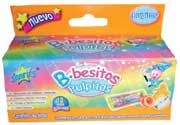
For the adult audience in Israel, Haco (Gümligen, Switzerland) introduced Snacky, a vitamin- and calcium-enriched energy cereal bar. In addition to its 1.66mkg of vitamin D, Snacky also boasts 800mg of calcium and 3.33mg of vitamin E.
A sweeter route to vitamin D comes in the form of Virginias chocolate-coated cookies from Industrias Rodríguez (Tarragona, Spain). D is one of 12 different vitamins, plus folic acid, calcium and iron.
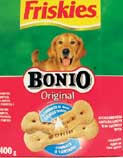
— William A. Roberts, Jr.